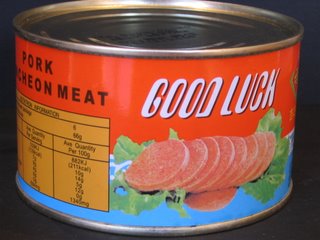Of course, they're not all true: the wonderful Urban Legends Reference Pages actually debunks some of these, including the false tale of the Chevy Nova having failed in various Spanish-speaking countries simply because "no va" means "doesn't go" in Spanish. (As if there weren't any Hispanic employees at GM in Detroit in a position to say "hang on a second...") Then again, the one we've all heard about the Mitsubishi Pajero is, apparently, true, as this scholarly account of Spanish swearwords from Wikipedia testifies. [WARNING: SERIOUS PARENTAL ADVISORY - THIS ACCOUNT OF SPANISH PROFANITY HAS VERY FRANK ENGLISH TRANSLATIONS.]
But step into one of Melbourne's increasingly accessible Asian grocery stores (there are two within 200 metres of QBrand's offices) and you get a better idea of how much we rely on familiar brands to guide us when we're shopping, and how easy it must be to miss some cultural subtleties when naming a brand for export. Even though many of the brand names are in English, the sheer number of unfamiliar names to mentally process can be almost overwhelming as you try to make sense of the structure of a particular category.
Still, it was well worth a few minutes' mental overload to find these two...

My usual advice to marketers is to avoid any connection - explicit or implied - between chocolate products and the word "colon".

And perhaps "Good Fortune" might have conveyed the intended meaning more effectively... in Australian usage, naming a canned meat product "Good Luck" sounds like a warning!

No comments:
Post a Comment